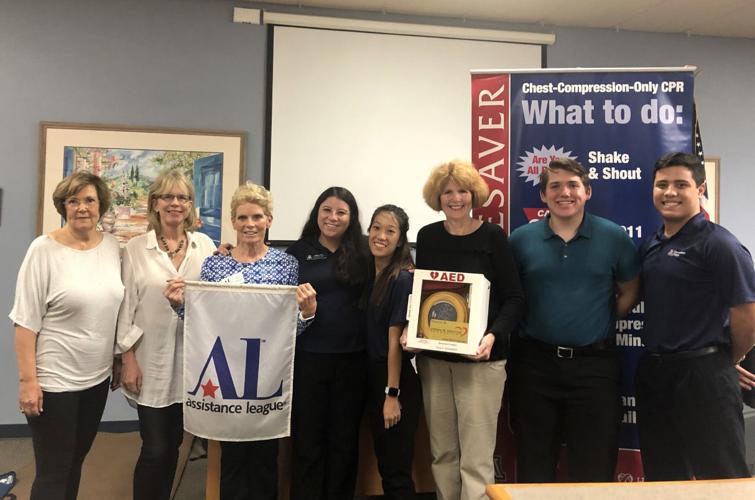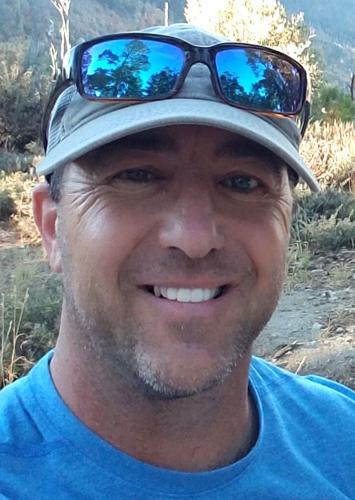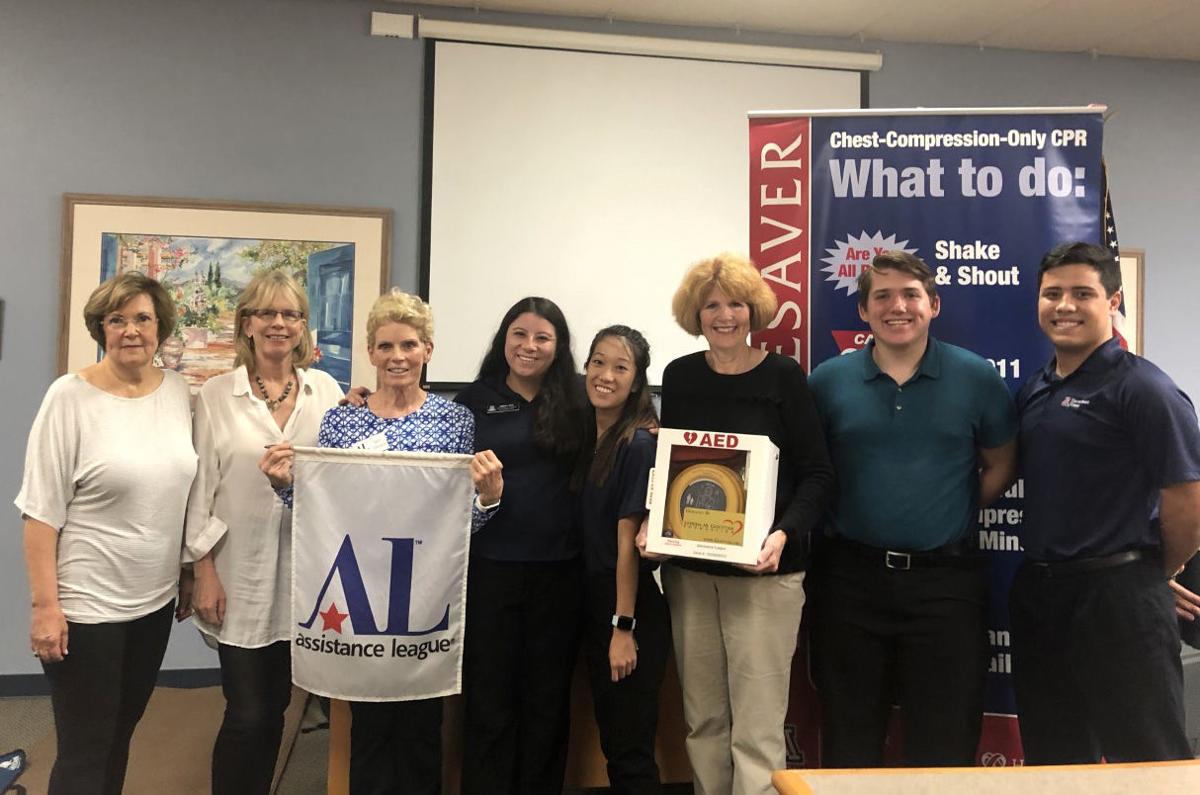Todd Miller died last year.
Thanks to the Steven M. Gootter Foundation, he lived to tell about it and he will share his story at the 14th Annual Gootter Grand Slam Gala on March 2.
“You hear people say, ‘I almost died,’ and I literally did die,” said Miller, who suffered a major heart attack due to a blockage in an artery on July 27. “I was not breathing and had lost all color. From what I understand, I was dead. I can’t tell you how grateful I am to the first responders and to the foundation that provided the machine that was in the right place at the right time and saved my life.”
A sergeant first class in the Army, Miller had been having chest pains since the day prior. After finishing his routine physical training that morning, the pain suddenly worsened.
“I wasn’t sure what it was, but I decided I needed to get to the hospital, so I began driving to the hospital in Oro Valley. I pulled over at one point because my chest was hurting and I was having difficulty breathing, but then I continued driving. I was in the intersection at La Cholla and Lambert and I had the heart attack,” said Miller, an Army recruiter.
Miller rear-ended a truck and the driver dialed 911 after realizing Miller was unresponsive. The call was placed at about 7:40 a.m.; six minutes later an Oro Valley police officer arrived and began performing chest compression only CPR.
Another officer arrived a few minutes later and used an automated external defibrillator provided by the Gootter Foundation on Miller.

Todd Miller, who suffered a major heart attack on July 27, 2018.
“From what I understand, the officers were able to get the electrode pads to stick to my chest. Then the machine kind of takes control and it told the officers that it needed to give me a charge, so they zapped me. The chest compressions hadn’t done anything initially ... but the officer said that after he zapped me, my arm jumped and moved, so it was pretty amazing,” said Miller.
After use of the defibrillator, Miller was stabilized and taken by ambulance to the hospital where a stent was placed in his artery.
“With the type of heart attack I had, I guess the cardiologist said there was a 92 percent chance I wasn’t going to survive. Again, it was a blessing to have first responders who had been trained in CPR and to have the AED there when I needed it. I directly credit those two factors to pulling me through,” said Miller.
Stories like Miller’s strengthen the resolve of volunteers for the Gootter Foundation, which recently donated its 300th AED locally, said Andrew Messing, foundation president.
“When Todd called to thank us and told us he found it was an AED that we donated that saved his life, it gave me the chills. I look at him and think, ‘Wow, I wouldn’t have imagined a guy like him would be a victim.’ He is only 45 years old, he is very fit and has been known to run half-marathons. ... The fact that the first responders shocked him with an AED and brought him back to life shows that the AEDs are doing exactly what they are meant to do,” said Messing.
AED donation is a major component of the Gootter Foundation’s mission to eradicate sudden cardiac death, which claimed the life of Steven M. Gootter during a morning jog 14 years ago. Since then, the nonprofit created by Gootter’s family and friends has funneled more than $4 million into scientific research, education and distribution of AEDs to churches, schools, recreation centers and other public places where people “work, worship and play.” Other recipients include nonprofits — the Ronald McDonald House received the 300th AED — and patrol cars with the Marana, Oro Valley and Tucson police departments and the Pima County Sheriff’s Department.
“It is a big push for us to get AEDs into the vehicles of first responders since they are often the first to arrive at the scene. All of the AEDs we distribute come with training on the machines and also on chest compression only CPR, which was developed at the UA Heart Resuscitation Laboratory and has been implemented across the United States and around the world,” said Messing.
As part of its outreach, the foundation emphasizes that training is not a prerequisite for AED use and that the machines can be key to saving lives, particularly if used within the first 10 minutes following a cardiac incident.
“Some bystanders hesitate because they are concerned that they could hurt someone and that is not the case: These devices are very simple to use and you don’t really require training to use one. They are smart machines and won’t administer a shock unless it is necessary, so they will not hurt a victim. Good Samaritan laws also protect bystanders who try to help someone in distress,” said Messing.
Along with outreach and education, the foundation continues to support research into sudden cardiac death.
Recent initiatives include funding of an investigator award at UA Sarver Heart Center for Jared Churko, UA assistant professor of cellular and molecular medicine, who is doing research on stem cells that could lead to development of therapies for arrhythmogenic cardiomyopathy, which can lead to sudden cardiac death.
Messing said smaller scale investigator awards or “seed grants” are vital to allow researchers to test hypotheses if they hope to receive larger grants from institutions such as the National Institutes of Health and the American Heart Association.
The $500,000 the foundation has directed toward investigator awards over the years has resulted in substantial research awards — a fact that Messing believes Gootter, an entrepreneur and inventor who held several patents himself, would appreciate.
“We recently found that our funding for investigator awards has resulted in more than $7 million of additional funding,” Messing said.
For both researchers and supporters of the foundation, the ultimate goal is to save lives.
“It is hard to make sense when a young, vibrant guy like Steve Gootter passes. ... So when we hear of a life that was saved because of the efforts that came from his passing, that at least, is comforting,” said Messing.






